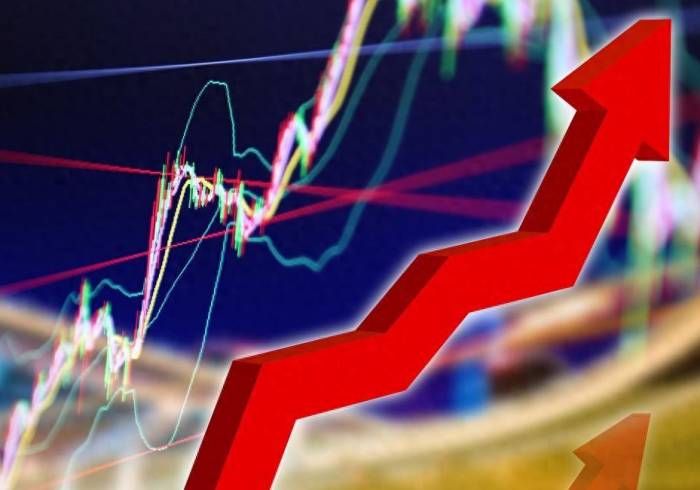In the last year and a half, the global stock market has performed quite well, but recently, the situation seems to have changed a bit. Despite some people still expecting interest rates to fall, the current round of growth was actually due to the expectation of a decrease in interest rates.
Recently, the overall performance of the stock market in the Asia-Pacific region has not been very good. The Japanese stock market fell by more than 1%, and since July 11, the Nikkei 225 index has fallen by nearly 7%. The stock markets of South Korea, Singapore, and Malaysia have also shown signs of fatigue. At the same time, the exchange rate of the US dollar against the Japanese yen has also fallen to its lowest point since May. It seems that every time the Asia-Pacific market adjusts, the appreciation of the yen seems to be an important factor.
The situation in Europe is not optimistic either. The Stoxx 50 index, Germany's DAX 30 index, France's CAC 40 index, and the UK's FTSE 100 index have all fallen. The US stock index futures are also falling, with Nasdaq, Dow Jones, and S&P 500 futures all showing significant declines.
What might be the logic behind this? Big names like Huang Renxun, Zuckerberg, and Bezos cashed out when the stock market was rising, and Buffett's interest in the stock market has also decreased. His Berkshire Hathaway company sold about $24 billion worth of stocks last year.
Advertisement
Now, the situation in the Japanese stock market is particularly bad. The Nikkei index continues to fall, and the exchange rate of the US dollar against the Japanese yen is also declining. Traders are all waiting for the Bank of Japan's policy meeting next week, and most people believe that the Japanese government will take measures to support the yen. Although only 30% of observers predict that the Bank of Japan will raise interest rates at the end of this month, more than 90% of people believe that the possibility of raising interest rates is very large.
It's not just Japan, other regional market performances are also not very good, including South Korea, Hong Kong, Singapore, Malaysia, and Australia. The US and European markets are also sluggish.
Analysts believe that as the yen appreciates, the global market has begun to withdraw liquidity, which may be an important reason for the weakness of the global stock market. In addition, the appreciation of the yen may also affect expectations for Japanese exports and the tourism industry.
JPMorgan Chase analysts predict that the Japanese government may introduce more economic policies to support the stock market this fall, especially before the US presidential election and the election of the leader of Japan's Liberal Democratic Party. They also mentioned that policies related to wage growth and corporate pension reform may be introduced soon, which is good news for the stock market. At the same time, it is expected that Japan's energy policy may be updated, which may accelerate the pace of restarting nuclear power plants, which is also good news for related stocks.
Entering a period of turmoil?
Although the global market still expects the Federal Reserve to cut interest rates, since the Trump attack incident, the global stock market has actually entered an unstable stage. This is mainly because the market's expectations for interest rate cuts were high before, and the rise of major global stock markets has accumulated a lot of bubbles.In such a tumultuous season, how will the stock market develop?
According to data from Guotai Junan Futures, both the Hang Seng Index in Hong Kong and the three major stock indices in the United States have performed very well in the year before the interest rate hike cycle. Especially the Hong Kong stock market, its performance after the end of the interest rate hike is even slightly better than during the cycle. The performance of the U.S. stock market in this round of the interest rate hike cycle is similar to the last cycle from 2015 to 2018. However, due to the promotion of AI innovation, the increase of the Nasdaq in this round has exceeded the Dow Jones. At present, the U.S. stock market may experience some adjustments in the short term, and the style may also change. The Dow Jones' recent performance is stronger than that of the Nasdaq, and the overall volatility has increased, seemingly entering a "questioning period" for EPS growth.
The analysis from Guoxin Securities shows that from the perspective of price, the stock prices of tech giants have generally reached the "12-month target price" set by Wall Street, which usually triggers profit-taking in history. From the perspective of fundamentals, even based on the most optimistic quarterly performance expectations, the implied price-to-earnings ratio of these companies has reached a historical high. However, the market pullback in this round may not be too large, and investors can refer to the Nasdaq 100 index when adding positions, which is adjusted to the 60 to 120-day moving average.

From the recent actions of the market bigwigs, the global stock market seems to have really entered a period of depression.
For example, Jeff Bezos, the founder of Amazon, recently announced a plan to sell 25 million shares of the company worth $5 billion.
At the same time, according to statistics, Huang Renxun, the founder of NVIDIA, has sold shares more than 10 times in the past month, with a total cash-out of more than $200 million.
Buffett has also been continuously selling stocks recently. According to the documents submitted by Berkshire Hathaway on July 19, the company sold Bank of America stocks worth about $1.5 billion. From historical experience, once Buffett starts to reduce some stocks, this trend will usually last for a period, including operations such as U.S. Bancorp, Wells Fargo, Bank of New York Mellon, as well as HP and BYD.
Comment